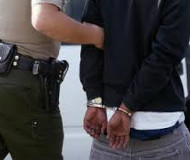10/30/2015
Study Uses Red Light Cameras To Test Racial BiasResearchers use red light cameras to test whether police consider driving while black a crime.

Researchers set out earlier this year to arrive at a more definitive answer the question of whether police pull over a disproportionate number of minorities. Many previous studies have looked at this question simply by comparing the number of traffic stops involving Hispanic or black to the racial composition of the jurisdiction, which only offers a crude idea of whether bias may be present.
The study by business and statistics professors at the Naval Postgradate School, Georgia State University and Georgia Regents University takes a different approach, using red light cameras to determine the rate of minority red light running without the bias of individual police officers entering into the equation. Published in Police Quarterly, the analysis looked at red light camera tickets issued at eighteen intersections in a community that was 76 percent white.
"This area is especially prone to suggestions of racial profiling," the researchers explained.
The researchers assumed that the cameras would issue tickets without regard to the owner's race. They gathered records for 8383 photo citations, worth $586,810, showing the name, race, sex and address of the ticketed vehicle owner. Census data and mapping software identified the demographic makeup of each neighborhood affected by the cameras throughout the region.
The researchers note that police traffic stops frequently target non-residents, so judging bias based on the racial makeup of a particular city or county may lead to misleading results. The use of automated cameras was meant to account for the demographic differences between the resident and non-resident populations.
The study's results show that race was not a particularly significant factor in automated ticket issuance. Instead, the farther a neighborhood is from the red light camera, the fewer tickets are issued. Larger households also saw fewer tickets. The researchers said they did not have enough data to explain the relevance of such factors.
The findings conflict with a 2001 study on the New Jersey Turnpike that found black drivers more likely to speed than white drivers.
"We suggest that some of the costly time and effort spent by state and federal policy makers and law enforcement agencies responding to charges of racial profiling could be saved or better targeted if it is demonstrated that racial profiling is less a factor of law enforcement culture and more a factor of the differences in driving population from the local population," the researchers stated.


